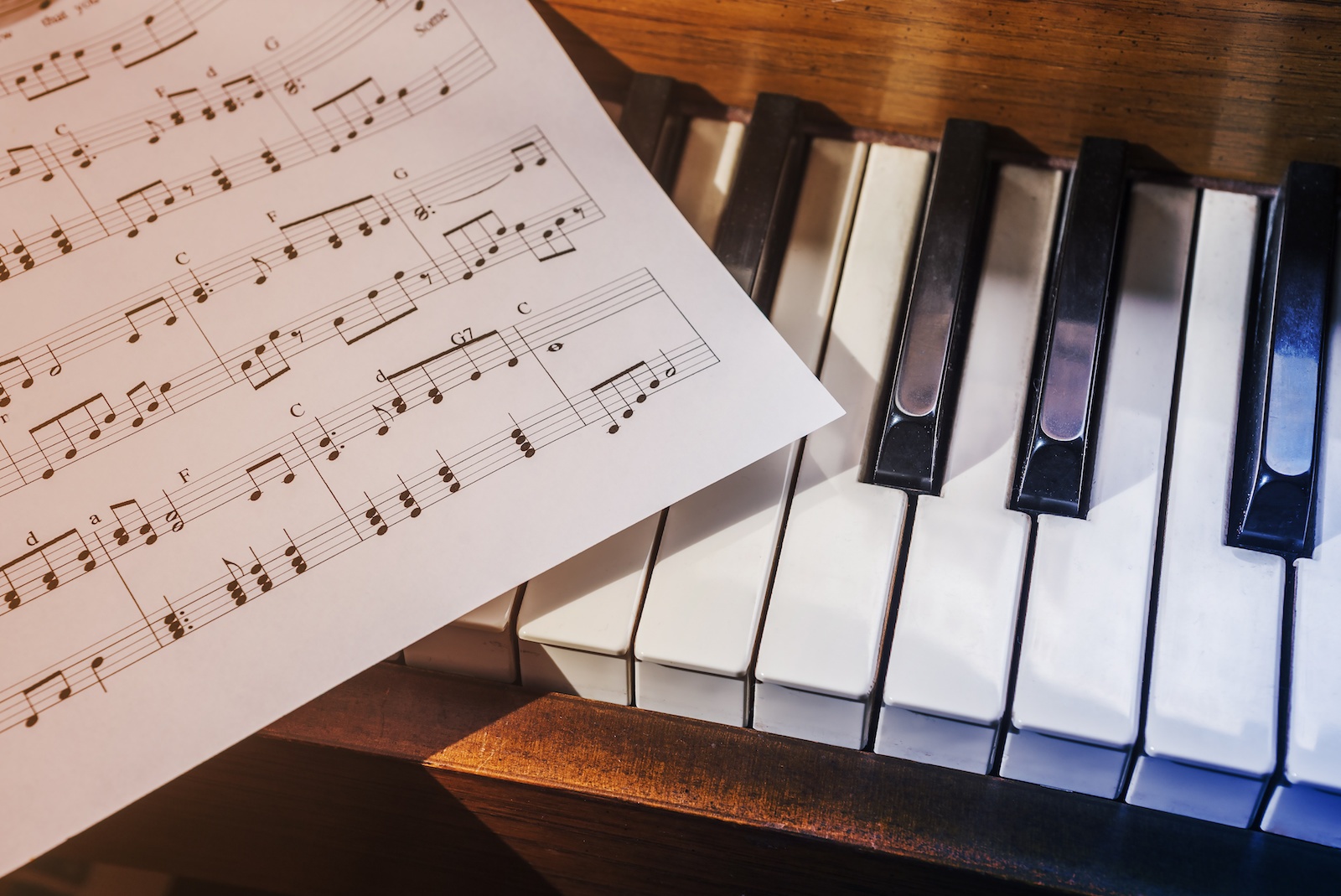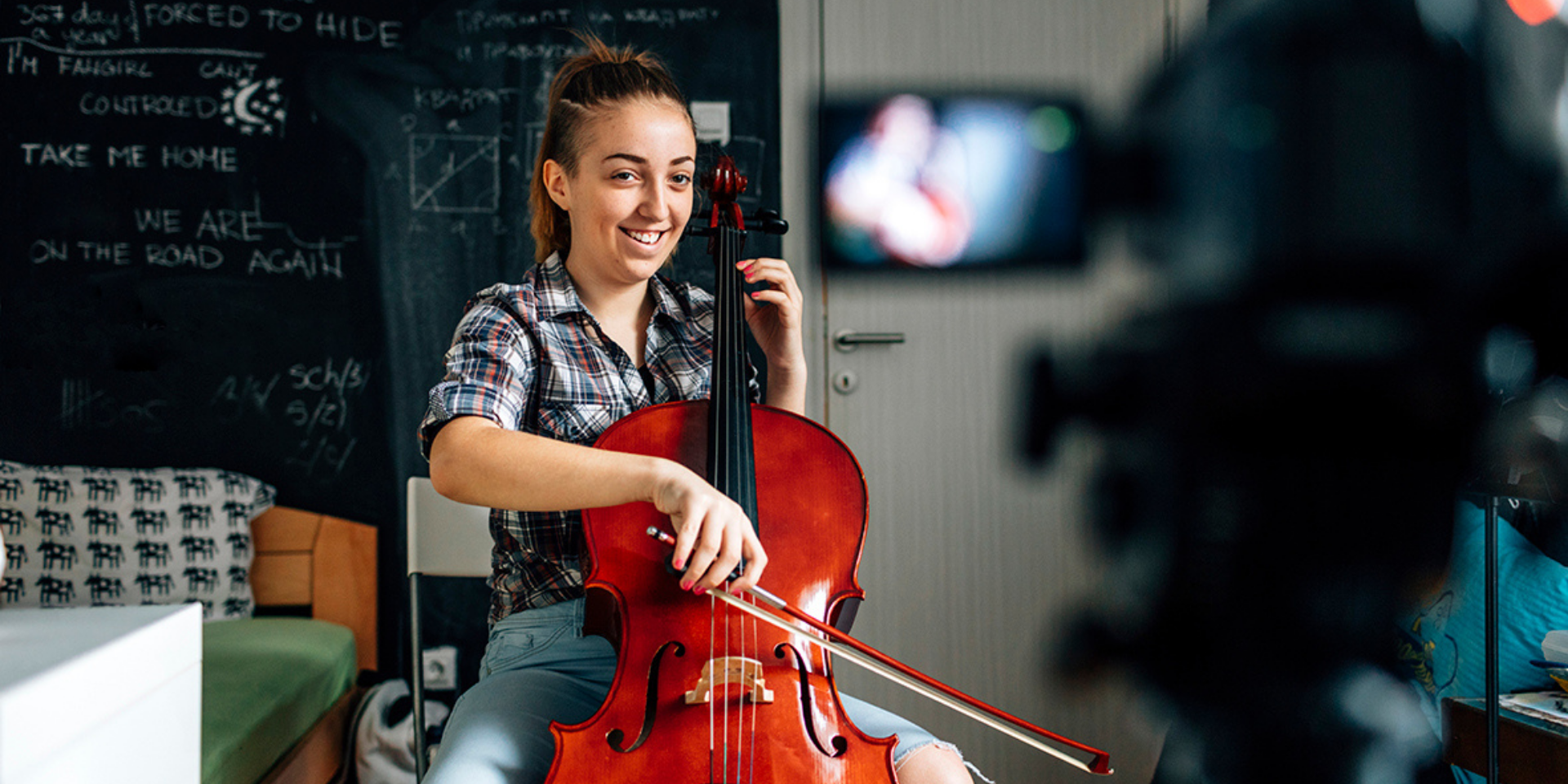
Three tips for succeeding in your graded music exam

BY: Jean McCreery
11 September 2017
What advice do you give to candidates when they are preparing for a graded music examination? Do you tell them to focus on accuracy? Would you recommend familiarising themselves with the assessment criteria?
Over the past months we’ve published interviews with many Trinity examiners on our international music blog. Below we distil their top tips for success.
1. Be prepared
Regardless of a candidate’s performing ability, it’s important that they are fully prepared for a graded music exam. Malcolm Godsman, one of Trinity’s examiners highlights the importance of being comfortable with the three parts of the exam:
'Make sure you are really prepared, secure and confident in all parts of the exam – pieces, technical work and supporting tests.
Some candidates think they can rely on their pieces alone – but the purpose of a music exam is to nurture and develop the all-round musician, and teachers and candidates should embrace this to the fullest in preparation for the exam.'
Steven Maxson agrees. He recommends that candidates prepare for the technical work and supporting tests as thoroughly as for the performance pieces:
'My top tip would be to ensure that all parts of the exam are equally well prepared; don’t focus on, for example, the pieces to the exclusion of the technical work and supporting tests.'
A well-prepared candidate will be able to play the pieces steadily and fluently. Peter Crompton suggests that candidates should focus on difficult passages:
'Make sure you can play steadily and fluently through your pieces and scales. Any difficult corners should be practised over and over till your thought processes are clear. Teach your brain the right way, every time.'
Richard Deering talks about the benefit of being prepared to arrive at the venue ahead of schedule:
'Get to the venue in plenty of time so that you can calm your thinking and just picture the mood or scene of the music before entering the exam room.
Although you have a choice, I would always advocate beginning with the Technical Work because that will help get you into the mood of the room, its acoustics, and, if a pianist, gets you the feel for the instrument.'
2. Picture the mood of the music
Graded music exams are about more than just accuracy. The assessment criteria for the performance pieces includes marks for ‘communication and interpretation’.
Richard Deering suggests that candidates should consider the relationship between the music itself and the piece’s title:
'If you work outwards from the piece’s title to the notes and rhythms, you can then conjure up pictures in your mind about what it is that you wish to share with your audience.
It then liberates you from the notes and helps you to communicate as naturally as within any spoken language… The greatest handicap for a performer is thinking too much when performing: we think when we practice but only listen when we perform…'
Richard goes on to highlight that this is an approach that will benefit candidates in parts of their life beyond music:
'Performing is with us all throughout our lives, be it settling into a new environment or having an interview for university. Treating the exam as another performance is a valuable way of viewing your preparation because the examiner is only interested in finding out what you can do and is not interested in what you cannot do.
Having this mindset helps overcome the inevitable stumbles that occur for all performers and is part of the ‘fun’ of being a human being.'
3. Enjoy the experience
In the run up to the examination, it’s easy to become obsessed with assessment criteria and the mechanics of the day. Anne Clark reminds candidates that their exam should be enjoyable. One way to do this is to make sure you’re performing pieces that you like:
'Pick pieces that you really enjoy playing – this will come across.'
Of course, those pieces should also be ones that you are able to master. Malcolm Godsman reinforces this point by emphasising the importance of choosing the right repertoire:
'Choose the [pieces] that are best suited to your natural interest, talent and skill.'
Gary Higginson suggests that candidates can use their enjoyment of the pieces to overcome any nerves that they may feel as they begin the exam:
'...walk into the room in such a way that you are saying ‘I intend to enjoy the experience of playing these pieces to this audience today’... Think of the music exam as a chance to demonstrate to a perfect stranger how good you are and how much you want to communicate the enjoyment of the music you have studied.'
Steven Maxson agrees. In fact, enjoyment is a core part of his expectations as an examiner:
'I am looking for someone who plays music rather than notes, where the music flows naturally and where the candidate seems to be enjoying making music.'
What are your tips for graded music exams?
We want to know the advice that you give to candidates about preparing for graded music examinations. Do you agree with the perspective of our examiners or do you point you candidates in a different direction? In-depth articles with each of the examiners mentioned in this blog post are available to read on Trinity's international music blog.
Use the comments section below to share your top tips and we’ll share your suggestions in a future blog post.




Comments & Replies